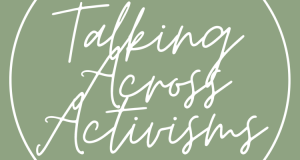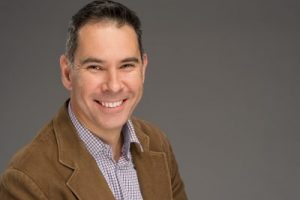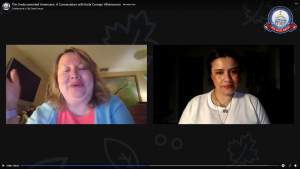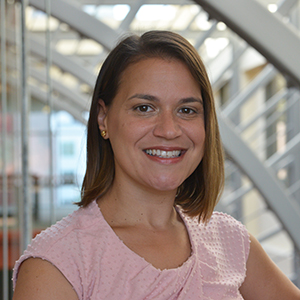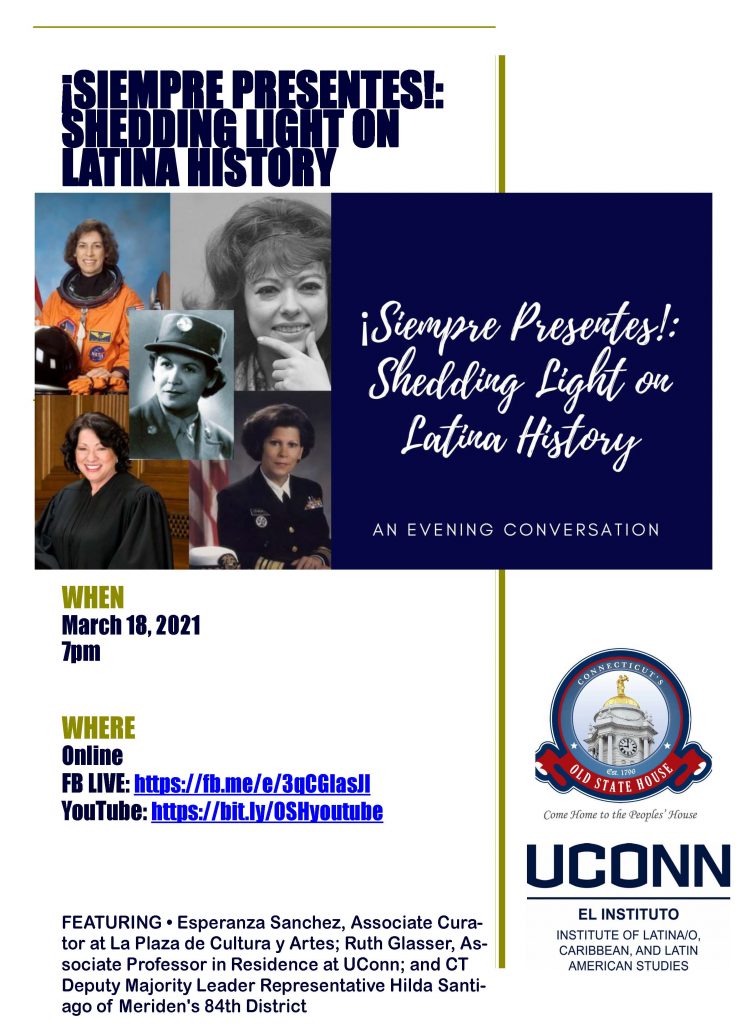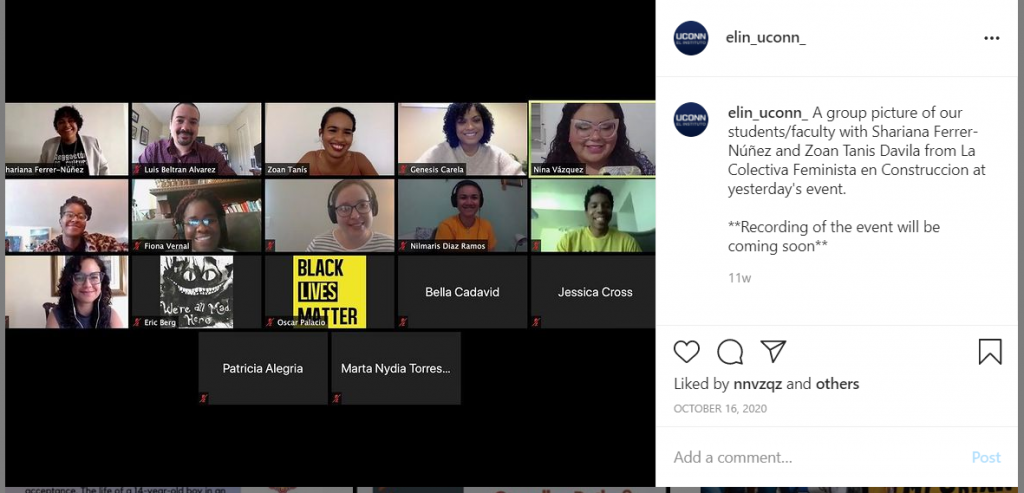Contributed by Jacqueline Loss
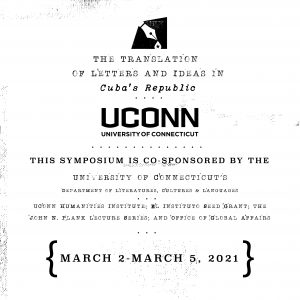
Over four afternoons between March 2nd and 5th, the symposium “The Translation of Letters and Ideas in Cuba’s Republic” took place virtually at the University of Connecticut, Storrs. Sponsored by the Department of Literatures, Cultures and Languages, the UConn Humanities Institute, an Instituto Seed Grant, the John N. Plank Lecture Series, and the Office of Global Affairs, the event brought together more than a dozen scholars who reside in the United States, Spain, Cuba, and Mexico.
Organized by Jacqueline Loss (Professor of Literatures, Cultures, and Languages) and Reynaldo Lastre (Ph.D. student in the same department) the symposium served as a space to generate and elaborate upon debates related to the politics and poetics of translation in Cuba from a broad theoretical spectrum. The event’s online nature meant that despite the symposium’s seemingly specific topic, it attracted between 40-60 audience members from around the world on a daily basis, making the Q and A sessions especially productive.
The discussions were organized into four different panels. “Translation and Ethnography,” moderated by Jane Gordon (Professor of Political Science), explored racial debates within Cuba’s Republic, paying special attention to the way in which new “scientific” ideas penetrated literary discourse. Taking this topic as a point of departure, the panel “Disciplines and National Identity,” moderated by Melina Pappademos (Director of the Africana Studies Institute and Associate Professor of History), problematized concepts as dissimilar as choteo, respectability and refinement, universalization, the translation across Caribbean islands and languages, childhood, and the forging of psychoanalytical discourse through translation. As part of the second day’s program, Peter Constantine and Brian Sneeden (Professors of Literatures, Cultures, and Languages) familiarized conference participants with UConn’s leading translation program. The third panel, “Philosophies, Geopolitics, and Translation,” moderated by Samuel Martínez (Director of El Instituto and Professor of Anthropology), emphasized the impact of the Cold War in decisions regarding what to translate and how to translate, particularly in the framework of literary and cultural magazines. To a large extent, the authors and topics that were chosen to be translated were conditioned and reinforced by the ideological perspective of the editorial lines of these publications. Finally, with the panel “Traveling Discourses,” moderated by Guillermo Irizarry (Associate Professor at Literatures, Cultures, and Languages), the formal and ethical problems faced by translators emerged, as well as the extent to which figures such as José Martí have been “monumentalized” through translation.
As can be surmised, the discussions went back and forth between an analysis of literal translations and their political and ideological implications. For the particular case of Cuba between 1902 and 1959, the remarkable presence of the Cold War, the transition from the colonial system to a Republican government, growing cosmopolitanism, and the opening of the public sphere made the exercise of translation one of the emerging nation’s most important vehicles. The impact of these translations was not only seen within the framework of literary trends, but also in medicine (especially psychiatry and pediatrics), criminology, and ethnology.
Many of the presentations expanded the time frame of the Republic, connecting the politics of translation in the colonial and Republican periods and reflecting upon their repercussions in the present on the island and in the Diaspora. Just one of those approaches that exceeded the framework of the Republic of Cuba was evident in a brilliant keynote lecture by Rafael Rojas, professor and scholar at the Colegio de México, who addressed three ways in which the Cuban Revolution was reflected in translations of Cuban magazines in the 1960s.
While summarizing these exciting exchanges in a categorical and balanced way is challenging, it is worth remembering the questions that were posed at the end of the symposium—questions that we hope to return to within an edited volume on the topic of this conference: How does friendship influence the politics of translation? What can we learn about translation through anecdote? How does the practice of invisibility of translators impact the construction of disciplines? What role does solidarity have within the politics of translation? Who is allowed to enter into these relationships, and who is not? In what way can the desire to translate also imply violence, coercion, or manipulation? How does literature translate disciplines that were the product of translations in an emerging nation? To what extent might translation attempt to rectify practices of marginalization?
